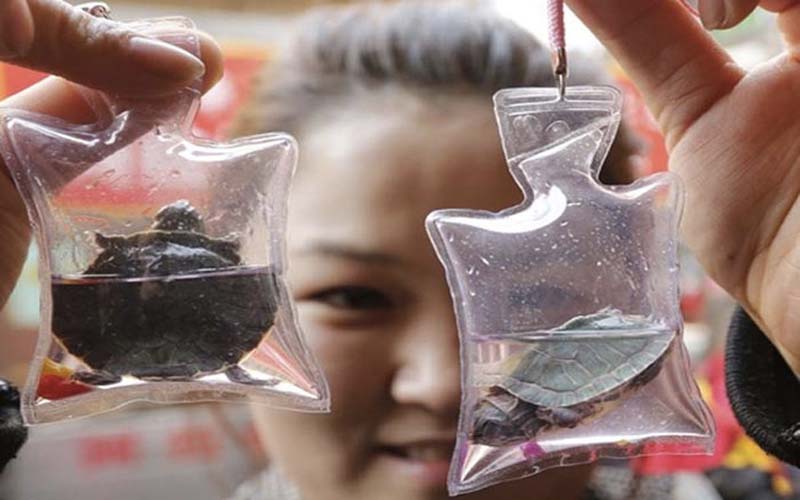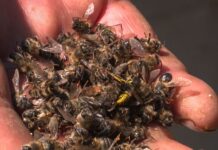A cruel trade of selling live animals on key chains has surfaced in Chinese cities.
Chinese sellers stuff baby sea-animals into tiny plastic bags filled with water, claiming it doesn’t hurt the animals. However, animal rights groups have argued the live animal key chains induce long-term suffering for the animals.
Often the live animal key chains are sold in the subways for the cost of a burger. The larger cities like Shanghai have the suppliers outside the train stations.
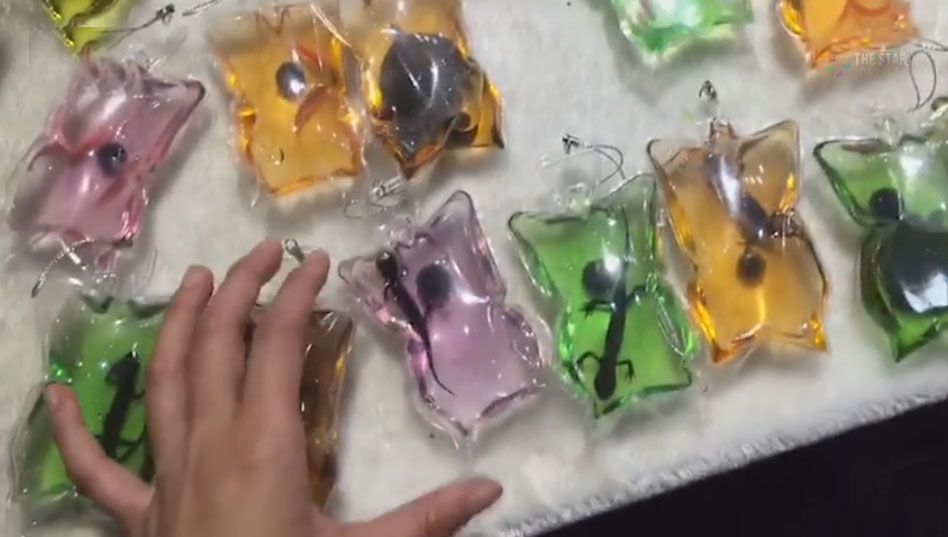
As logic would have it, common sense suggests that many of these animals are dying in their miniscule cages. Some vendors of the animal key chains say that the animal needs to be cut out of the enclosure within 24 hours if they’re to survive. Incredibly, most of the animals stuffed into the plastic pockets are amphibians and reptiles, such as baby sea turtles and lizards, and need land to survive.
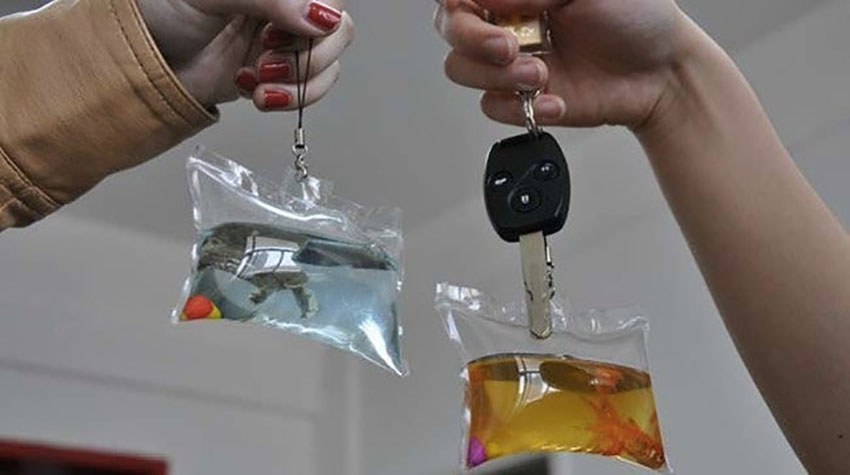
Despite the Novel coronavirus hitting Chinese shores from the slaughter of live animals and consumption of bats in a wet market, life does go on and so too does a certain cruelty to animals. Several petitions to stop the animal key chain practice have barely curtailed the teenage craze.
Dr. Sam Walton from the Universiti Malaysia Terengganu said the excretion into the water and then respiration will kill the animals. Although there might be adequate oxygen, this cycle produces ammonia, which is particularly toxic to marine creatures. Temperature changes from the enclosed plastic cases act as a mini greenhouse for them too. Other concerns are the key chain shaking and swinging, starvation and eventual suffocation.
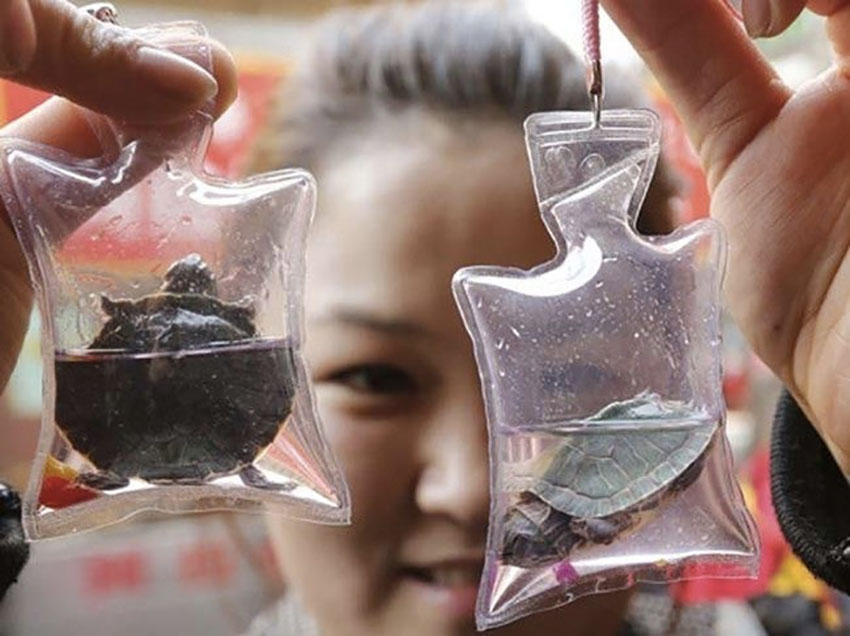
Despite China introducing an animal protection draft in 2009, it is yet to be implemented with full force. Animal rights have steadily risen, but many argue that it is barely enough.
The Shanghaiist claims a single food pellet is given and makes the startling ignorant claim that the animals can live three months without being fed.
